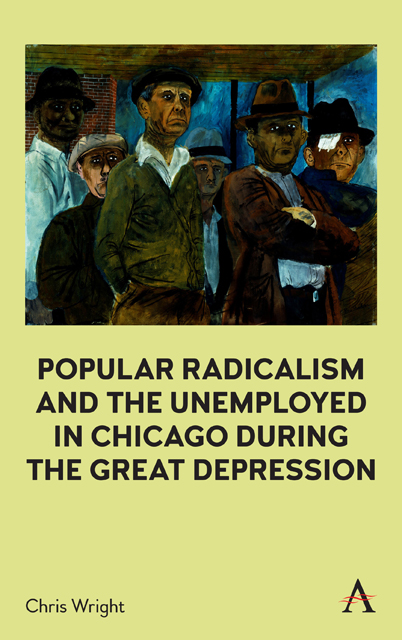Chapter Five - Relief, Part II: Governments, Unions, and Churches
Published online by Cambridge University Press: 09 December 2022
Summary
Two central conflicts broadly determined the quality and quantity of relief for Chicago's unemployed in the 1930s: the class conflict and the political conflict between Cook County and all other Illinois counties (usually referred to as downstate counties). The class conflict, as usual, was by far the more significant one, being largely responsible, at least indirectly, even for the insufficiency of the federal government's aid for relief, but the fierce rivalry between Cook County and downstate counties bore much responsibility for Chicago's many relief crises. Rural counties did not want to pay to relieve Chicago's unemployed, so they regularly lobbied and voted against the city's interests in the state legislature. But the city did not want to pay for its poor either. So in the battle between Cook County and the rest of the state, it was the unemployed who suffered.
This chapter has two purposes: first, to tell the sordid tale of local and state governments’ neglect of the poor, as manifested in their meager financing of relief; second, to contrast this miserable record with the more generous one of many unions and churches, which because of their social missions could not act so callously toward the jobless. The section on government in particular supports the Marxian conception of the state as being heavily dominated by the ruling class in its struggle to amass and maintain as much power and wealth as possible. Inasmuch as the disaffected poor tended to share this Marxian attitude, the analysis supports the argument that the supposed cynicism, “apathy,” resignation, and diffuse resentment of many of the long-term unemployed were based on a quite rational understanding of the world. Of course, to some very limited extent, the state is capable of neutrality in adjudicating between the poor and the rich, and through popular movements it can be forced to heed certain demands of the lower orders. This fact, too, many of the poor understood, as by the millions they pressured government at the local, state, and federal levels to move to the left.
The accounts in this and the following chapter support the analysis given by Frances Fox Piven and Richard A.
- Type
- Chapter
- Information
- Publisher: Anthem PressPrint publication year: 2022



